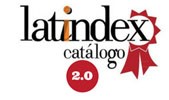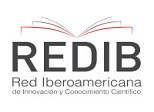Neuroeducation as a Space to Train Human Beings Capable of Developing Themselvess
DOI:
https://doi.org/10.69890/hallazgos21.v5i2.465Keywords:
Technology; knowledge; neuroeducation; human development; cognitive processes.Abstract
This article analyzes how the technological age can end up making the human being a person who consumes digital tools, sometimes displacing criticality and the means to redefine himself as a being capable of developing and making sense of technological elements. The use of cyberspace, in the same way, makes it noticeable that the image is becoming a state of replacement of the concrete reality, leading to the fact that the human being does not make use of his cognitive faculties. The objective of this reflection is to reaffirm that the person is the one who gives meaning to technology, since he has his own qualities that he puts into practice, facilitating innovation strategies, all based on the improvement of educational processes; without those structures, he would be a static being, confusing himself in this digitized world that continues to grow very rapidly. The methodology used is framed in an analytical-reflective and historical-critical process. An approach is established by some authors, who contribute to enrich this article: Hessen, critical theory; Kant, criticism of the processes of education; Marcuse, one-dimensional thinking; Morin and his introduction to complex thinking and Žižek, cyberspace. The results found show that it is the human being who gives meaning to technological means and it is its substantial character. Finally, the conclusions show that the human being cannot evade his intention to make sense of everything that he uses and therefore he is called to reaffirm himself through the neural processes that he executes.
References
Aguilar, G. F. (2011). Reflexiones filosóficas sobre la tecnología y sus nuevos escenarios. Sophia, Colección de Filosofía de la Educación, 11, 123-174.
Aguilar, G. F., Bolaños, V. R., & Villamar, M. J. (2017). Fundamentos epistemológicos para orientar el desarrollo del conocimiento. Quito: Abya Yala.
Bolaños, V. R. (2017). El problema del conocimiento y la educación desde las tendencias filosóficas analíticas. Sophia, colección de Filosofía de la educación, 22(1), 35-54.
Codina, M. J. (2015). Neuroeducación en virtudes cordiales. Cómo reconciliar lo que decimos con lo que hacemos. Barcelona: Octaedro.
De Zubiría, M. (2009). ABC de Pedagogia Conceptual 4. Como funciona la mente humana. Más allá de la Psicología Cognitiva. Bogota: Fundacion Internacional de Pedagogia Conceptual Alberto Merani.
Garcia, X., & Gonzálvez, V. (2019). La libertad incorporada como clave para la neuroeducación moral. Sophia: Colección de la Educación 26(1), 59-82.
Gazzaniga, M. S. (2005). El cerebro ético. Barcelona: Paidós.
Hessen, J. (1981). Teoría del conocimiento. Madrid: Espasa Calpe.
Instituto Nacional de Tecnologías Educativas y de Formación. (2017). Marco común de competencia digital docente. España: Educalab.
Kant, I. (2008). Sobre pedagogía. Córdoba: Universidad Nacional de Córdoba.
Llinás, R. (2003). El cerebro y el mito del yo. El papel de las neuronas en el pensamiento y el comportamiento humano. Bogotá: Norma.
Lucas, L. R. (1999). El hombre espíritu encarnado. Salamanca: Sígueme.
Marcuse, H. (1984). El hombre unidimensional: ensayo sobre la idelogía de la sociedad industrial avanzada. Barcelona: Ariel.
Morin, E. (2001). Introducción al pensamiento complejo. Barcelona: Gedisa.
Ortiz, O. A. (2015). Neuroeducación ¿Cómo aprende el cerebro humano y cómo deberían enseñar los docentes? Bogotá: Ediciones de la U.
Paladines, J. F. (2017). Psicofisiología general. Quito: Abya Yala.
Patrascoiu, J. (1982). Curso completo de lógica. Buenos Aires: Librería de A. García Santos.
Plancarte, C. D. (2017). Inclusión educativa y cultura inclusiva. Revista Nacional e Internacional de Educación Inclusiva, 10 (2), 213-226.
Posada, R. J. (2014). Ontología y lenguaje de la realidad social. Cinta moebio, 70-79.
Terrones, R. L. (2018). Pensamiento dominante, educación y medios de comunicación. Sophia: colección de Filosofía de la Educación, 24(1), 313-336.
United Nations Education, Science and Culture Organization. (2019). Directrices sobre políticas en la educación. Recuperado de http://unesdoc.unesco.org/images/0017/001778/177849s.pdf
Yehya, N. (2008). La revuelta de la cultura popular. Tecnocultura. El espacio íntimo transformado en tiempos de paz y guerra. México:Tusquets.
ŽIŽEk, S. (2006). El ciberespacio, o la suspensión de la autoridad. Lacrimae Rerum: Ensayos sobre cine moderno y ciberespacio (Trad. R.Vilá Vernis).Madrid: Debate.
Published
How to Cite
Issue
Section
License
Los artículos enviados a la Revista Científica Hallazgos21 deberán ser totalmente originales e inéditos.
Los autores son los responsables de los textos y las imágenes incluidas en los artículos y no necesariamente reflejan el pensamiento de la editorial o de la Pontificia Universidad Católica del Ecuador, Sede Esmeraldas (PUCESE).
Los autores disponen cederle a la Revista Científica Hallazgos21 todos los derechos inherentes para la edición, publicación y distribución o divulgación del mismo.
Se autoriza a las revistas firmantes de los acuerdos de Encuentros de Revistas Latinoamericanas para reproducir en parte o totalmente los artículos con la sola mención de la fuente claramente señalada.







